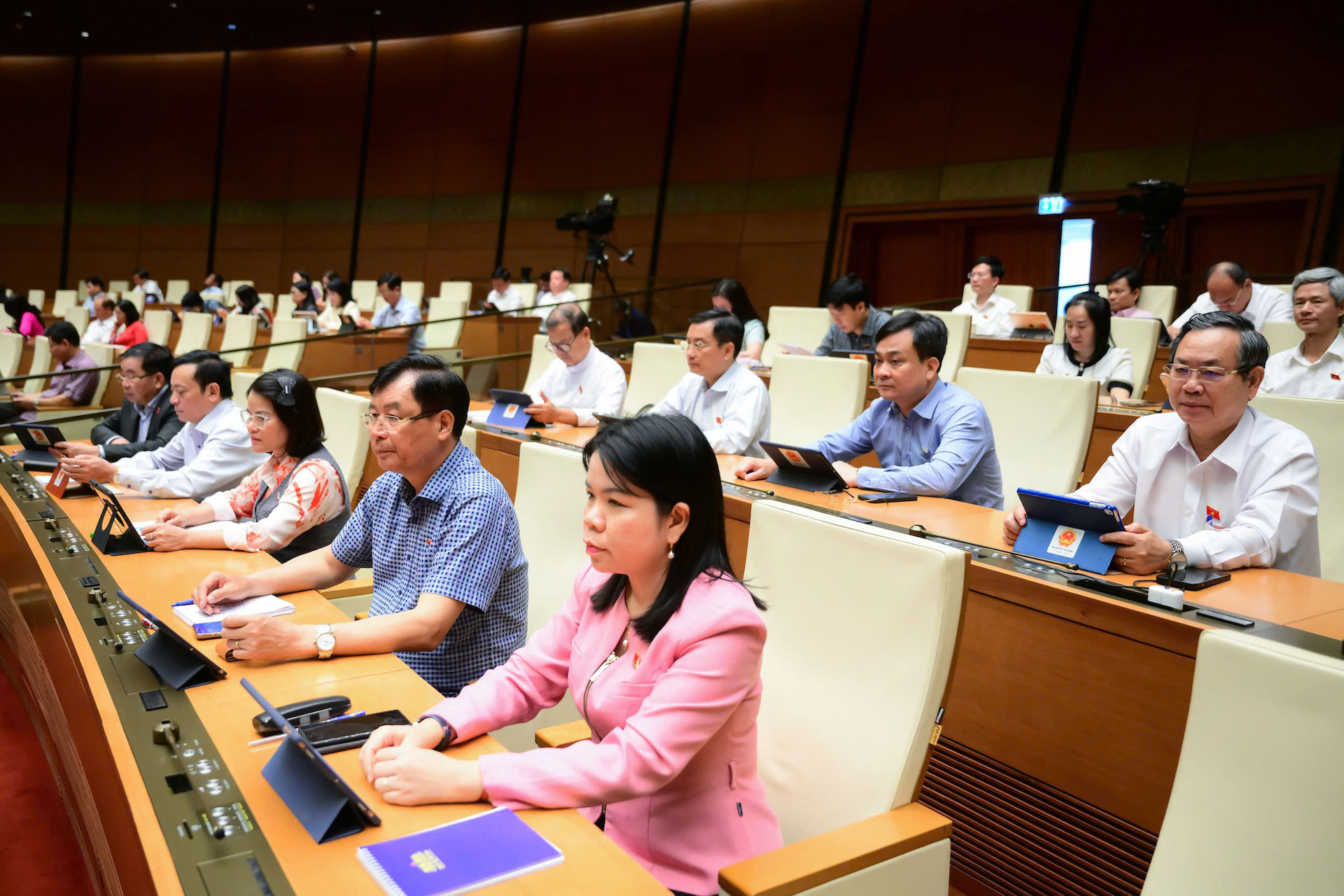
Over a decade has passed since the last amendment to Vietnam’s PIT Law. During this time, people’s living conditions have changed profoundly, with prices rising daily, yet PIT rates have remained largely unchanged. The PIT policy has become outdated, unfair, and no longer suitable to the current socio-economic context.
Outdated and unreasonable
The Law on Amendments and Supplements to the PIT Law was passed by the National Assembly in late 2012 and took effect on July 1, 2013. Since then, the family deduction threshold has been adjusted only once – in 2020 – from VND9 million to VND11 million per month.
Meanwhile, the CPI has cumulatively increased by 46.5 percent, meaning average prices today are nearly 50 percent higher than in 2013.
Maintaining such a low taxable income threshold for over a decade, while the CPI has risen significantly, has pushed millions of workers – who earn just enough to survive – into the tax bracket.
The tax authority’s argument that “the family deduction threshold is only adjusted when CPI increases by more than 20 percent” is no longer appropriate. This is a mechanical approach, disconnected from the reality of people’s spending. A serving of ordinary pho has risen from VND30,000–40,000 to VND50,000–60,000, a 50 percent increase. Yet, the tax system assumes people are living with the same spending levels as a decade ago.
ASEAN peers
Another paradox is that Vietnam, despite having a per capita income lower than many countries in the region, sets lower taxable thresholds and imposes heavier tax.
Vietnam’s taxable threshold is VND11 million per month, regardless of regional differences, and does not allow deductions for essential expenses like healthcare, education, or health insurance. As a result, salaried workers in Vietnam face taxation earlier and at higher rates than those in countries with significantly higher incomes.
Reducing PIT
The government plans to reduce the VAT by 2 percent to stimulate demand.
Raising the family deduction threshold or adjusting the PIT schedule would immediately ease the burden on people with regular income, create room for spending, stimulate demand, and, most importantly, restore confidence in tax policies.
Annual consumption accounts for 55–60 percent of GDP, which shows the critical role of domestic consumption in GDP growth. As the country strives for 8 percent growth in 2024 and aims for double-digit growth in the future, stimulating consumption through PIT reduction is the most reasonable and feasible solution.
The PIT Law needs urgent amendments, including raising the family deduction threshold to at least VND15–18 million per month, adjusting the progressive tax schedule by widening tax brackets and lowering tax rates, and allowing deductions for essential expenses such as tuition, medical costs, rent, and health insurance.
Additionally, tax reforms should update thresholds and schedules based on actual income, not just CPI, control informal income through integrated financial, banking, and digital platform data, and allow flexible deductions for essential expenses to ensure fairness and reasonableness in tax policy.
PIT is an important tool for income redistribution in society, but if it is unfair and unreasonable, it becomes a barrier to development. Reducing PIT, more than any other policy, will boost consumption and support economic recovery.
National Assembly Deputy Nguyen Hoang Bao Tran from Binh Duong at the 9th session said alongside the roadmap for early wage policy reform, it is urgent to amend the PIT, as the current regulations "are outdated and have been long awaited by the public."
Tran Hoang Ngan, a respected economist, when discussing the socio-economic development in the second half of the year, emphasized the need to restructure three traditional driving forces – export, investment and consumption. Enhancing domestic consumption is an important task, and amending PIT policy is a tool to reach that end.
“I propose that the government promptly submit to the National Assembly the policies to boost aggregate demand, including urgently adjusting PIT by raising the family deduction threshold. We should not delay this any further,” said Ngan, adding that the PIT amendment project should be submitted to the National Assembly for consideration and approval at the 10th session of the 15th National Assembly, before it officially takes effect in early 2026.
In the latest news, Deputy Prime Minister Ho Duc Phoc on June 18 confirmed that the tax amendment would be submitted to the National Assembly’s 10th session, slated for October.
Tu Giang